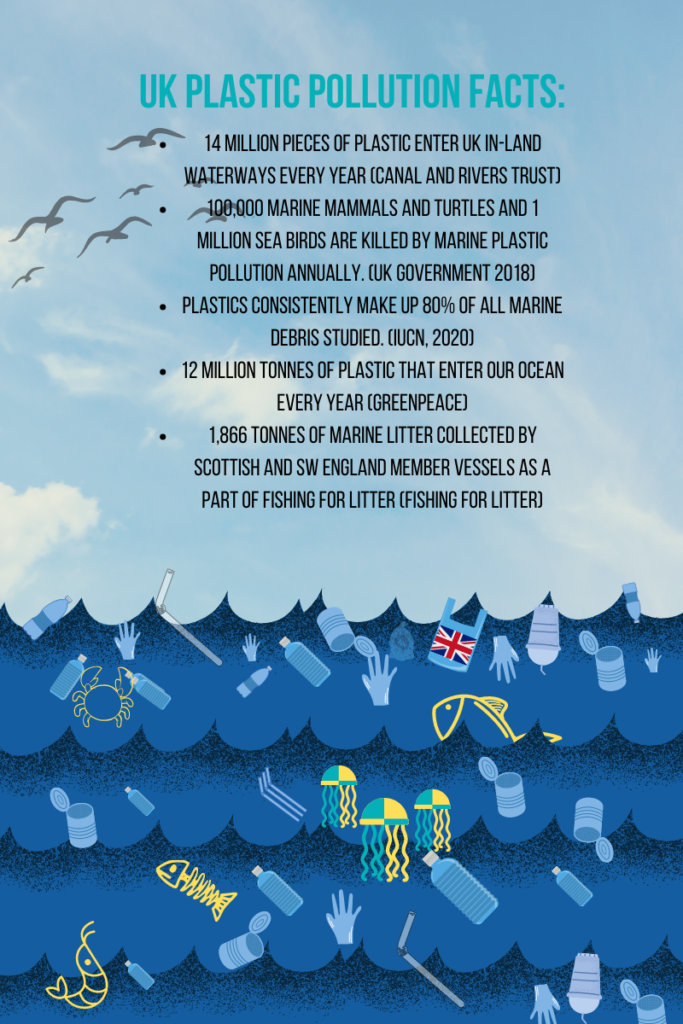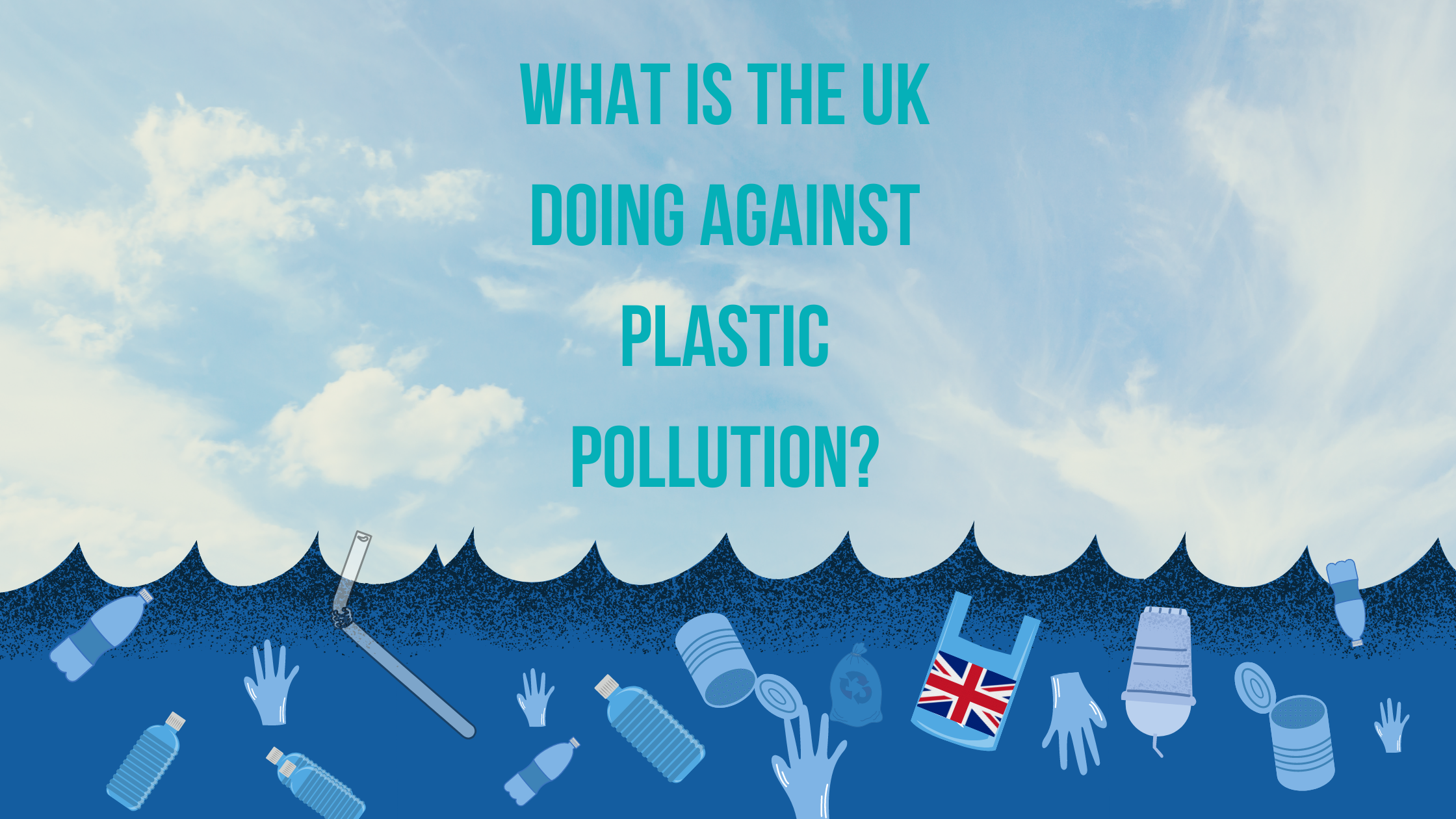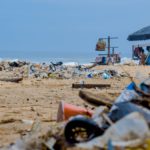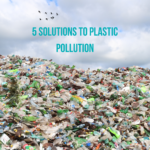Plastic pollution has crept into every corner of our lives. Commonly, food packaging and single-use plastic items such as cigarette butts and plastic drinking bottles are the biggest offenders.
To put into perspective how much plastic we use and how much goes to waste: over the last ten years, the UK has produced more plastic than in the previous century. Only one-third of this plastic is recycled.
What happens to the rest?
It is being dumped in open-air tips when put in a bin; it gets carried by wind or water and ends up polluting rivers and oceans. It endangers sea birds and aquatic life and damages our ecosystem.
We drink, eat, breathe, and even poo it. Plastic contaminates our food chain and the air we breathe. And research is showing that it has negative effects on our health, too.
What is the problem with plastic?
The problem is not plastic itself. Plastic is an incredibly versatile material that has changed life in many positive ways. The problem with plastic is the amount of plastic we produce, how we consume it and how we process it as a waste product. Why is that a problem? Because it does not biodegrade. It lasts forever. A single plastic drinking bottle can take between 500 – 1000 years to natural breakdown.
Plastic pollution knows no borders:
Plastic pollution does not need a passport to travel across borders. Plastic is a global problem. Over 16 million plastic bottles enter the environment every day, and they do not discriminate as to where they will end up. You might find them on the most glorious beaches, in remote villages, or rivers and freshwater sources.
International cooperation is required to combat the problem. In 2017, the International Union for the Conservation of Nature (IUCN) published the National Marine Plastic Litter policies. It was published in consultation with EU member states, which the UK was at the time. It outlines the action each member state would take to fight plastic pollution.
Plastic Pollution Solution:
There are many potential solutions to solve the UK’s plastic pollution problem, and they are as varied as the organisations providing them. Some of them are Government-led, others by NGO’s and Charities, such as Fishing for Litter and the Canal and River Trust.
As varied as the organisations are, they all seem to work within a common framework and towards the same goal. To clean and protect oceans, rivers and green infrastructure.
UK Plastics Pact
One thing to come out of the G2O that might impact the plastic pollution levels in the UK is the Government signing up for the UK plastics pact.
The pact pledges that by 2025:
- 100% of plastic packaging will be reusable, recyclable or compostable
- The UK will effectively recycle or compost 70% of plastic packaging
- The UK will eliminate problematic single-use items
- That on average, 30% of all packaging will be recycled content
When a national Government signs an accord or makes pledges to tackle climate change or an aspect of it, it tends to make headlines. This makes sense, of course, but we must not forget about the long-running work of international conservation groups like the WFF and Greenpeace. These groups actively campaign and protest to highlight the damage caused by plastic pollution.
Plastic Greenwashing:
Some big plastic producers such as Shell refuse to sign up to accords such as the Paris agreement or the Plastic pact. And some like Coca Cola make a profit by appearing to solve a problem while contributing to another. As well as arguing its plastic bottles are single-use, despite contrary evidence. So one of the biggest plastic producers can not even pay lip service to reduce its plastic production. And then another one willfully misleads the public to think it is the solution, not the problem. What chance does the UK have in the fight against plastic pollution?
The front line of plastic pollution in the UK:
Although there is indifference from giant corporations and little more than good intentions from the Government on plastic pollution, there is passion from organisations and charities like the Canal and River Trust and Fishing for Litter. These are the groups who are on the UK’s front line fighting plastic pollution.

Fishing for Litter:
Fishing for Litter is an initiative founded in 2000 in the Netherlands. It aims to reduce the amount of marine plastic in the North Sea and operates in cooperation with the fishing industry in Scotland and South West England. They provide bags and waste points at harbours so the fishing industry can collect large amounts of plastic waste alongside their fishing hauls.
The Canal and River Trust
The Canal and River Trust is the charity responsible for most of the canals and rivers in the UK. The UK’s canals and rivers are associated with fishing and leisure boating, but they are also a vital lifeline for those without access to green space. According to the office for national statistics, only 1 in 8 people have access to a private garden. Many who are without a garden rely on the canal towpaths to access nature.
The problem CRT have, the more people that use the towpaths, the more plastic pollution is left, and more of it will end up in the canal. To combat this, the CRT has been proactive at engaging and educating the public about plastic pollution. It has built up a small army of volunteers and runs several successful awareness campaigns such as the #plasticschallenge and #actnowforcanals.
Action against pollution
There are national legal directives that ban single-use plastic in takeaways and straws in pubs. There is a 5p charge for plastic shopping bags, and it is estimated to have reduced the amount of bags used by 80%.
The UK is happy to make simple but effective changes to policies that reduce the amount of plastic that the average consumer uses. The removal of plastic waste is problematic, and sometimes it even makes the headlines.
More long term solutions are urgently needed to stop the plastic epidemic in the UK, as in the rest of the World. There is an effort to reduce the amount of plastic we produce each year, but is it superficial? Is it enough? Are we forever doomed to mop the kitchen floor while the sink is overflowing?






